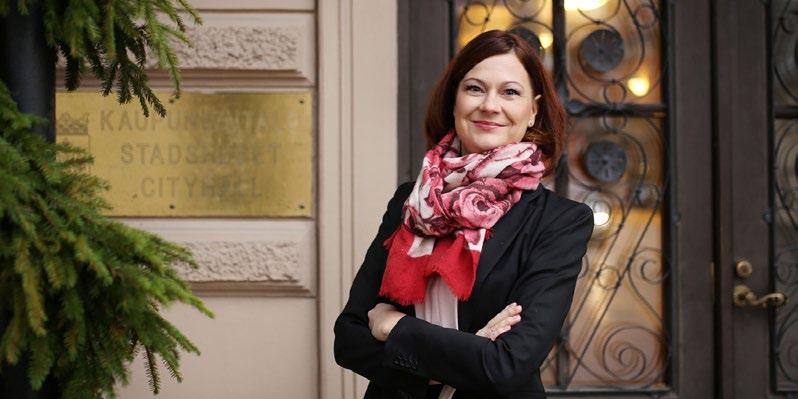“The Future of Europe” conference UBC Brussels Antenna by Marko Paunovic | marko.paunovic@ubc.net A part of the UBC Brussels Antenna is striving to connect UBC member cities with European stakeholders and increase involvement in EU policy dialogues where possible. I would like to bring to your attention a new opportunity for involving your cities in shaping the EU’s future policies and ambitions trough the ”Conference on the Future of Europe” . What is the ”Conference on the Future of Europe”? The presidents of the European Parliament, Council and Commission of the EU signed a joint declaration on the ”Conference on the Future of Europe” . The ceremony was held on 10 March in the Parliament of Brussels plenary chamber. The aim of the Conference was to give people a bigger role in shaping EU’s future policies and ambitions. People will be able to take part in advance in debates across the EU and express themselves through a multilingual digital platform. Such Conference events, be those physical or digital gatherings, can be organised at different levels, including European, national, transnational and regional level and will involve civil society and stakeholders. Citizens’ participation in these events should aim at mirroring Europe’s diversity. A feedback mechanism will ensure that the ideas expressed during the Conference events result in concrete recommendations for EU action. What are the key topics? Reflecting the Strategic Agenda of the European Council, the 2019-2024 Political Guidelines of the European Commission and the challenges brought about by the COVID-19 pandemic, discussions will cover, amongst others: building a healthy continent, the fight against climate change and environmental challenges, an economy that works for people, social fairness, equality and intergenerational solidarity, Europe’s digital transformation, European rights and values including the Rule of Law, migration challenges, security, the EU’s role in the world, the Union’s democratic foundations, and how to strengthen democratic processes governing the EU. Discussions can also cover cross-cutting issues related to the EU’s ability to deliver on policy priorities, such as better regulation, application of subsidiarity and proportionality, 20
implementation and enforcement of the acquis and transparency. How can the cities engage? While, in light of social distancing measures and similar restrictions related to COVID-19, the use of digital engagement efforts and activities are of key importance, physical participation and face-to-face exchanges should still constitute an essential part of the Conference. At the European level, European institutions commit to organizing European citizens’ panels. These should be representative in terms of citizens’ geographic origin, gender, age, socioeconomic background and/ or level of education. Specific events should be dedicated to young people as their participation is essential for ensuring a long-lasting impact of the Conference. The panels should take on board contributions gathered in the framework of the Conference providing input to the Conference Plenary by formulating a set of recommendations for the Union to follow-up on. Each Member State and institution can organise additional events, in line with their own national or institutional specificities, such as national citizens’ panels, or thematic events bringing together input from different panels. The European institutions will also reach out to citizens and promote broader, interactive and creative forms of participation. Input from all Conference-related events will be collected, analysed, and published throughout the Conference via a multilingual digital platform – also a place for citizens to share their ideas and send online submissions. A feedback mechanism will ensure that the ideas expressed during the Conference events result in concrete recommendations for EU action. What are the next steps? The Executive Board already met on 7 April in the European Parliament and the Digital Platform was launched on 19 April. UBC Antenna will follow the process and inform the UBC Member Cities about the possible ways to engage in national citizens’ panels or thematic events and bring cities’ perspective into the policy dialogue.

































